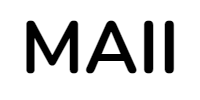Who we are

Our History
Our humble beginnings started in 1981 when Hajia Maryam Alolo became the first lady in the Northern Region of Ghana to start an Islamic institute in 1981, providing Islamic education to women and girls. She braved the storm to actively engage in Da’wah activities at a time when such activities were perceived as male. She navigated gender and socio-cultural prejudices in a patriarchal environment where women’s place was regarded as being in the kitchen.
Profile of our founder
Hajia Mariam was born in 1957 in Tamale, to Alhaji Mahama Bila and Zainabu Iddrisu. Her late father was a renowned Sheikh in Tamale who run the Nawariyyah Islamic Institute. She was not put into secular education because at the time such education was largely reserved for men and women were only expected to learn obtain only Islamic education in order to be good wives to their husbands. Consequently, Hajia Mariam studied the Quran from her father, and upon completion, at a tender age, was introduced many books in Islamic jurisprudence (fiqh). She also studied Al-Ahdari, Al-Ashmawi and Al-Zaburah from her father.
After studying tafseer of the Holy Quran, Hajia Mariam went into business for many years with her husband, Alhaji Alhassan Alolo, who was then a successful businessman based in Tamale. She returned to the Quran fully in 1981 when her husband’s business crumbled. During this downtime, she started revising some of the lessons from her father and would recite the Holy Quran all day in her store while revisiting other relevant Islamic literature.
With time, she was approached by a lady called, Afa Ayi, to teach her the Quran. As she embarked on teaching her only student, it won the admiration of other traders. Soon, her store was too small to contain the students and had to move to a nearby house that was spacious enough. By 1988, the women moved into a local mosque to hold their Quran lessons and with a lot of encouragement from her husband, she started going back to her father to acquire deeper knowledge on Quran exegesis, among others.
Realizing that some of the women were widows and did not have means of financial support to fend for themselves and their children, she started using her name to collect goods on credit for the women to sell and generate income. Many more women enrolled in the classes as attendance as attendance became an avenue for spiritual and economic empowerment. By 1990, the institute had over 200 women and girls from all walks of life. In addition to the Quranic lessons, she preached decency in character, dress code and human relations. She is credited for being the woman that popularized women’s wearing of hijab in the Northern Region.
Our Activities
- Providing high level of Islamic and western education.
- Providing vocational education & training (VET) to complement the system of education and training, as technical training has become the cornerstone of the modern knowledge economy.
- Providing basic literacy training in computers usage
- Environment and sanitation activities
- Nation and community building – patriotism

What We Have Become Today
- From our humble beginnings, today the school has over 1000 widows, traders, and economically women who are learning and teaching in nearby villages. Over 1000 women have graduated and some are teaching on nearby communities.
- The Institute has over 300 children comprising orphans, abandoned children, street children and other children from under-privileged backgrounds.
- The Institute has become a natural point of call for persons in distressed situations, be it mental, economic or physical health challenges. Through the generous contributions of our donors, we are able to support such people by the Will of Allah. We gather contributions from to support surgeries and others needing hospital care.

